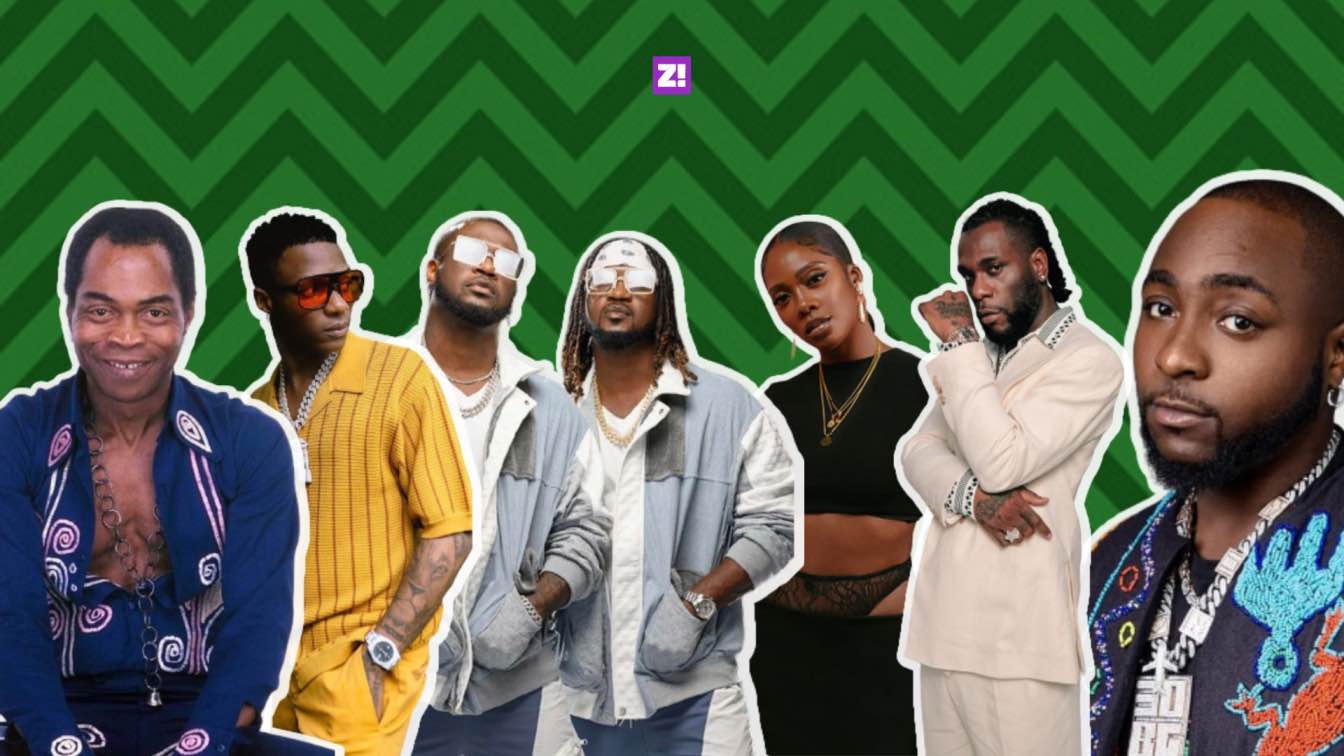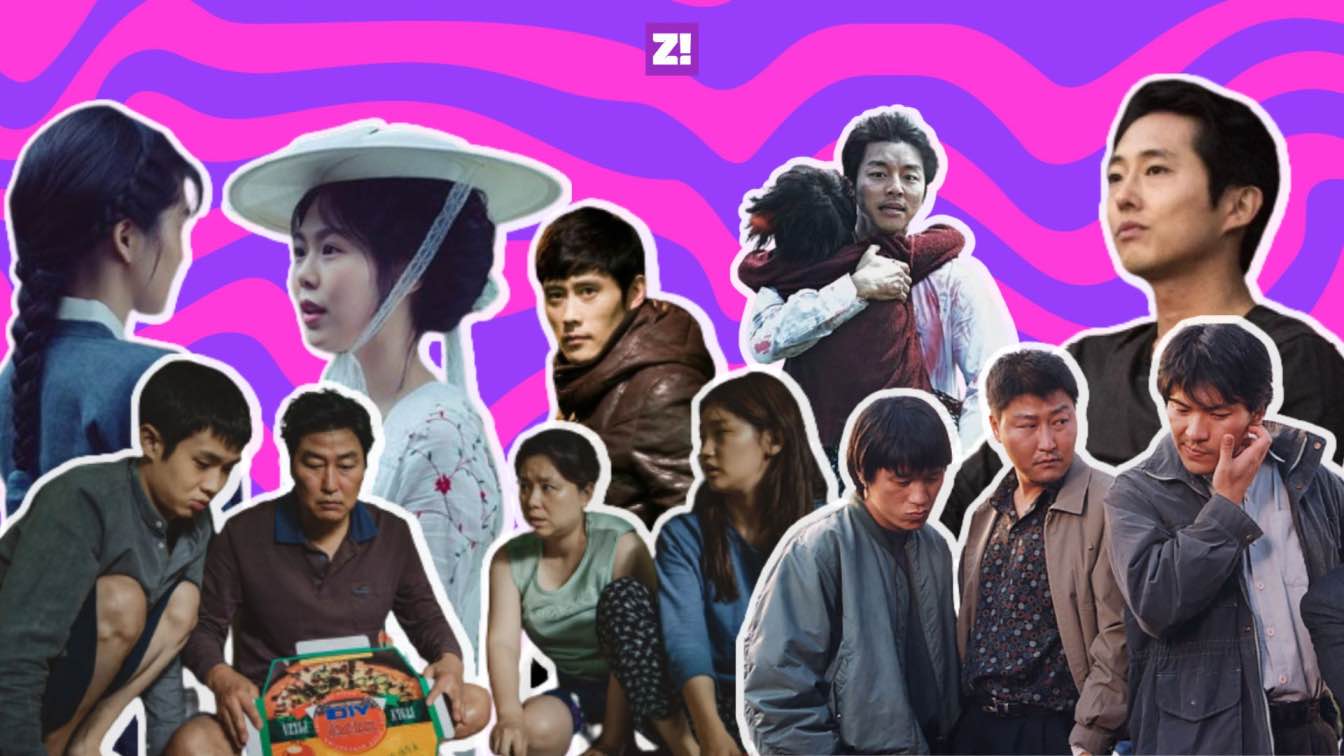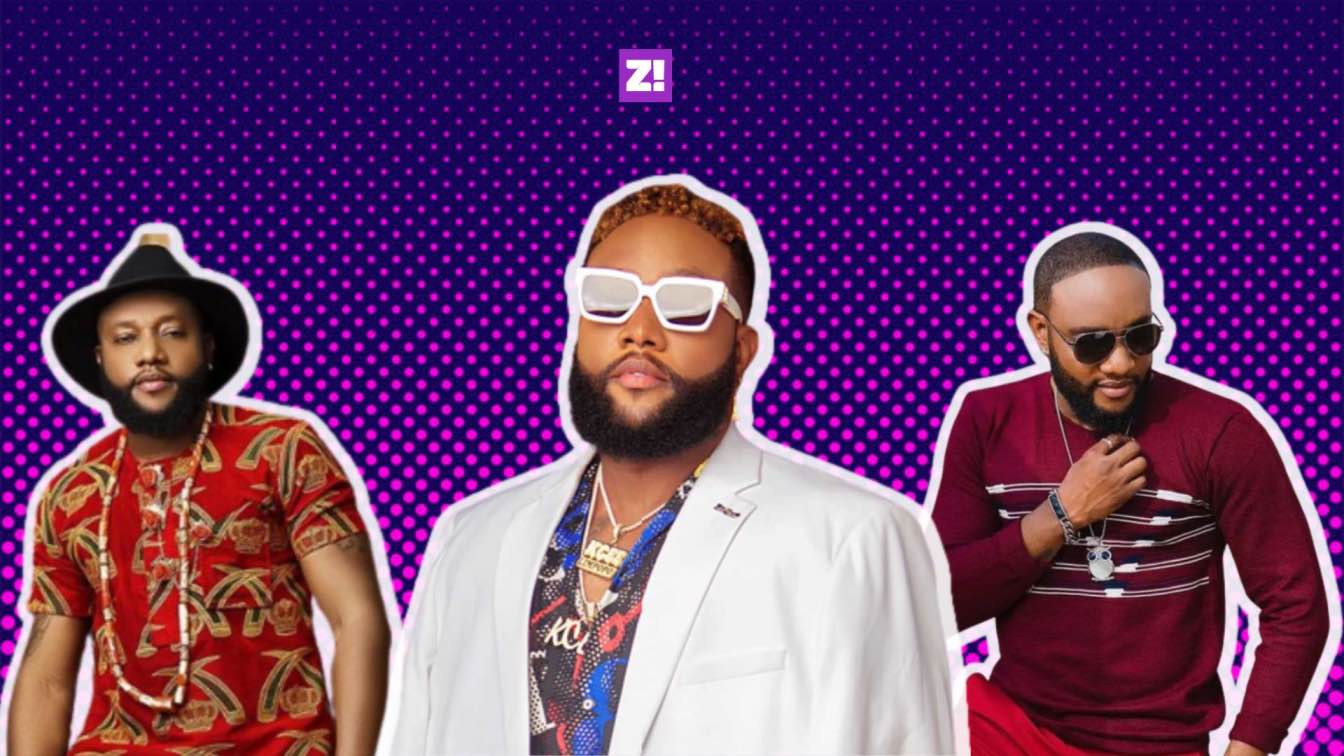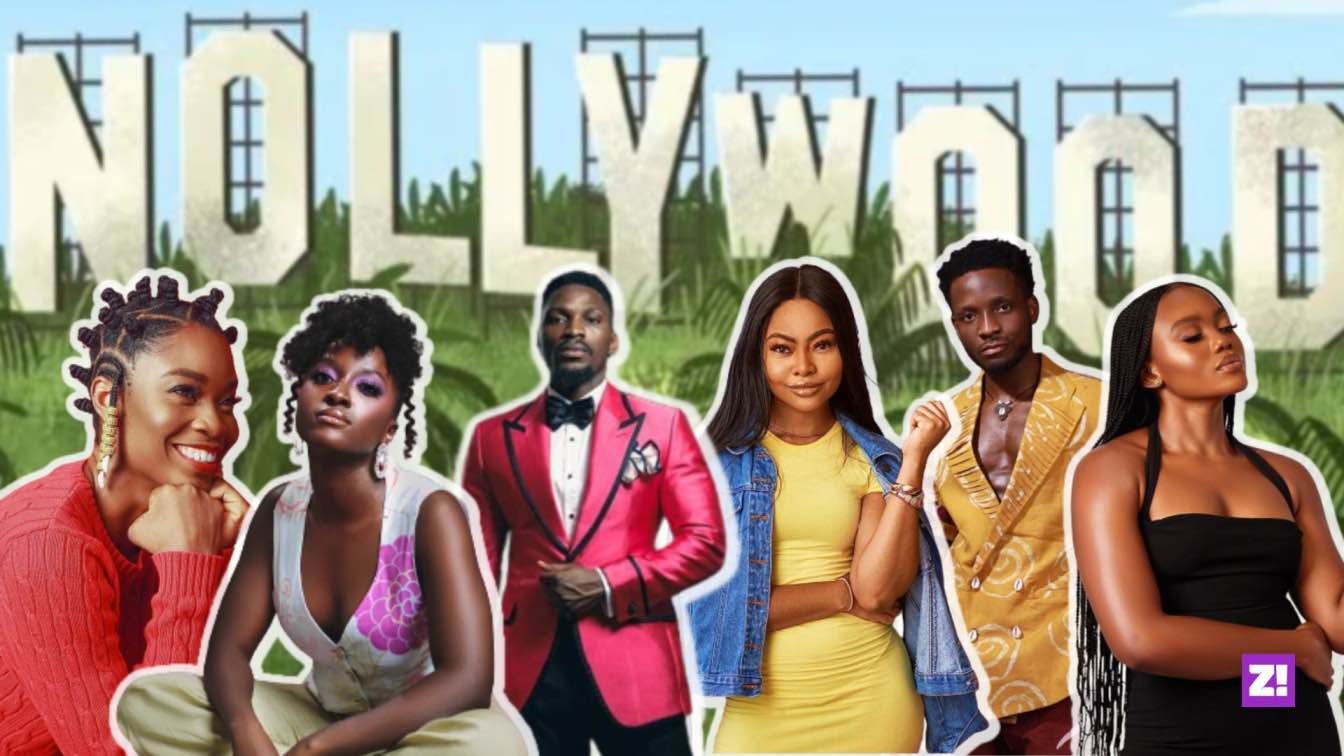“It was a reality check, mehn,” Stella Damasus tells me. “I was a household name in Nigeria, and I was doing good. But then I moved to a different country [America] where people didn’t even know who I was.”
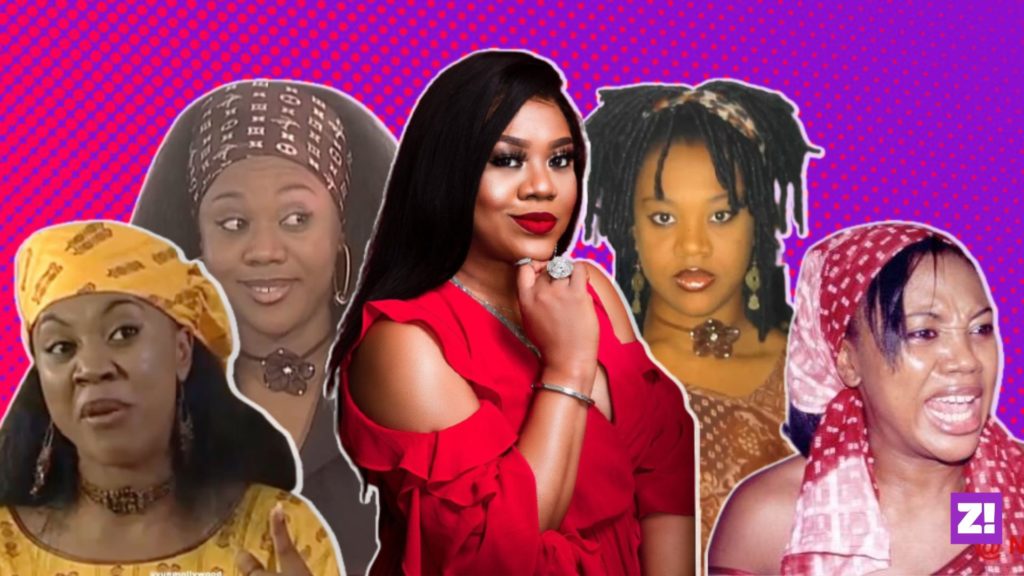
From the outside looking in, Stella is one of those few actors who has achieved stardom that never really fades. She’s transitioned from the prominent face on posters for Nollywood classics — Missing Angel, Real Love and Games Women Play — in the early 2000s to being the face of some of the most viral memes on the internet today.
As someone whose childhood was marked by several Stella Damasus movie moments, it was hard not to get starstruck as we talked about what it was like navigating Old Nollywood, her favourite Stella Damasus memes and the struggles that come with starting all over again after leaving a successful career in Nigeria behind.
It’s been a minute since we saw you onscreen. What have you been up to lately?
Plenty of work. On the entertainment side, I’ve shot four movies in America I hope will come out this year (2023). I’m shooting another one soon that’ll hopefully bring me back to Nigeria. And then, I have businesses because life in America is different.
Tell me about it
I can’t depend on one source of income. I have a media company; an online store, Geli; I coach marketing and communications; and I teach actors in An Actor’s Playhouse. What else do I do again? Omo, dem plenty.
The hustle is real. I’m curious how you adjusted to living in a new country, where you couldn’t rely on being “Stella Damasus, the actress”
I had to sit up and realise acting opportunities, specifically the ones I like, don’t come along all the time. But you know what comes almost every day? Bills. America isn’t a place where I can say, “Oh, I have a gateman or a driver.” I have to do everything myself.
As an immigrant, I had to do double work to learn the culture and look for opportunities because no one cared who I was back home in Nigeria.
Did you ever consider moving back to Nigeria?
I still considered moving back yesterday. I’ve thought about it on and off for seven years because no matter how much time I spend, life here is never easy. Sometimes, I wonder why I left my life in Nigeria behind, but then, I remember I’m doing this for my children. I want to come back after I’ve accomplished much more with my life. I want my children to look at me and be inspired by the sacrifices I made.
Why did you feel the need to make that sacrifice and walk away from everything?
I wanted my girls to grow up in a more enabling environment where they’d be free to explore different skills and career paths. Growing up in Nigeria, I saw how women were marginalised and their voices stifled; I didn’t want that for my girls. Don’t get me wrong, there’s still disparity in equality for women worldwide, but there’s a certain level of freedom women have here, and that’s what I wanted for my girls.
What did you want for yourself?
I wanted to learn more about what it took to be an international actor. I’d been a big fish in a small pond, and I was ready to challenge myself by getting into an industry in a completely different environment.
I remember actresses like Sandra Achums, Georgina Onuoha and Victoria Iyanma moved abroad and stopped acting. Yet, you’ve somehow managed not to. How do you find these projects?
I don’t blame the actors who move abroad and stop acting. E remain small, me sef I for don start nursing or IT.
LOL. I’m scrimming
As a Nigerian, your number one goal when you get here is: “How am I going to survive?” Now imagine trying to feed and get shelter, and then someone tells you to go for acting classes or audition with small small children because your Nigerian resumé doesn’t count?
Getting acting jobs was hard for me. In Nigeria, they told me to tone down my oyinbo. But in oyinbo land, they told me I didn’t sound American or African enough, so they didn’t know what to do with me. Then there was my skin not being “African enough”, me needing to lose weight to become a size six and finding a manager who believed in me as an actor.
Hollywood speaks a lot about diversity and inclusion, but the truth is, they haven’t extended this diversity to African actors. They would rather cast non-Africans to play an African role and make them put on these outrageous accents.
As someone used to telling Nigerian stories, how do you approach or connect with characters you get as an actor in America?
When I read a script, I like to ask questions. I ask myself and then the producer: “Does the story make sense? Does my character make sense in the story, or can they do without me?” I’ve never been the person to go: “Oh, the money is too small,” because I’ll do it as long as the script speaks to me.
I’ve grown to understand that just because I don’t relate to a character or story as a Nigerian doesn’t mean they’re not important. Americans have a different culture. I’ve received scripts where my peculiarities as a Nigerian didn’t allow me to understand the story from the jump. I’m like, “Okay, this and this happened, but what does it mean?” I have to do the work to understand where they’re coming from.
Tell us about a recent character that challenged you in that way?
Red. She’s a character from a short film I did called AKWUNA, and she’s a sex worker. It’s a very gritty story, so I had to do things I haven’t done in my over 28 years of acting. I know when people finally see it, they’ll be shocked. It’s not the girl-next-door character they’re used to seeing me play.
Let’s go back in time a bit: I’ve heard many stories about Old Nollywood, back in the 1990s and early 2000s in Surulere and Festac. What are some of your fondest memories from this era?
Oh, my goodness! Those two places. No matter where we lived at the time, we had to show up in Surulere for auditions, and then Festac was where the movies were shot. There was this small hotel, Winis, where we gathered every morning to go and look for auditions like it was our office. Life wasn’t that difficult back then because we were all friends. It wasn’t just about who got what role.
There was also this office at the National Theatre where they’d paste notices for auditions. See, even if it was three different places we had to go for auditions, we’d enter buses and go. It was do or die for us. If we wanted a role, we had to line up for hours to audition, and sometimes, it didn’t get to our turn before they chose someone.
It’s different from today; I can stroll in and get a role based on my social media following or how much I can invest in the film.
We wanted to act so badly. There was no plan A or B; acting was our only plan. I look back now, and I miss those days.
Being an actor is a big deal now so it’s easy to see why anyone would want that life. But Nollywood wasn’t always like this, which makes me wonder how you could want something so bad when you couldn’t even tell what success would look like when you got it
We didn’t have a clear cut vision of what the future would look like. It was just passion. The money we were paid when we started was nothing, but we didn’t mind. I was lucky enough to have married early and had a man who supported my decision to become an actor, but not everyone had support at home. Acting was frowned upon. My family fought me and didn’t talk to me for three years. I said, “I’ll become something, and you guys will love me back.” LOL.
RECOMMENDED: Everything You Should Know About Becoming an Actor in Nigeria
Wow
We didn’t have an idea of stardom or that the money will one day be good. Acting was a chance for us to have the freedom to be anyone we wanted and still get paid something for that. What could be better than that? It was a part of our existence. Omo, I go still dey inside bus and I go see my face on top of posters under Ojuelegba bridge. No one could tell me anything. That was our high. Walking around Tejuosho market and having people recognise us and say, “See that girl from that film,” because they didn’t even know our names. That was our idea of stardom.
I remember my father calling me to say they’d asked him to come into the manager’s office at the bank because they saw his last name, and he said he was my dad. That was the beauty of it for us actors back then.
I miss the era of posters, videotapes and DVDs. Going digital has made superstardom less tangible in my opinion. Now you can just swipe, scroll and move on.
My kids call me old school because I like to hold and feel things live. I still have my old CDs, and sometimes, I just go into my bedroom and watch my films. Nothing beats inserting that CD and being drawn into a different world.
As an actor back then, you knew you’d made it when your face is bigger than everyone else’s on a poster, and your name is written in bold. It’s not like now where we have different posters for each character. I could take a poster and have it up in my room. It felt real to me. We’ve gained a lot from technology, but I miss that life too.
You enjoy watching your old work?
I used to hate looking at myself doing anything. But over the past few years, I’ve realised I appreciate myself more because there’s proof of growth. I watch some old movies and be like: “Damn, how did I become a household name?” or “Why was I crying and shouting like say somebody bin dey press my neck?” But all this was without formal training. Many of us came into the industry with just raw talent.
Talking about your old work, please, tell me you’ve seen the memes people have made from clips of your scenes?
Perish that idea! I’ve seen a lot.
I’m dying. Which one’s your fave?
It has to be that one—Wait, I also like that clip of me in the brown dress, rolling on the floor screaming: “Oh my god. I’m dead,” and the one from Games Women Play where I’m trying to open the floor.
I love seeing these memes because they always make me laugh. But what I appreciate the most is someone thinking of an expression or reaction, connecting it with a scene I’ve done and then taking time to cut that scene out for memes. Guy, that’s a lot of work. If someone had told me when we were shooting that those scenes would be something people call a “meme”, I wouldn’t have believed them.
Let me dive into your memory of these films for a minute. I remember watching Engagement Night with Charles Okafor, The Bridesmaid with RMD and then that sad film with Jim Iyke and Clarion Chukwura—
It was called Cry Like a River.
Yeah, that name is apt. You were a millennial romantic comedy and drama icon, and I’d like to know what you remember about making those films.
Those movies made my career what it was. Producers would look at me and say, “This babe is good for romance and crying.”
It was weird taking on romantic roles initially because most of the films selling were about jazz, like Circle of Doom or Living in Bondage. So it’s not like we had role models for romcoms. Imagine meeting someone for the first time, and you have to start hugging them and forming love.
I contemplated stepping away from romantic roles, but then, I started seeing how much impact these films made, and I reconsidered. People loved these films. Everybody wanted to marry me! I’d meet random people telling me how the way I loved Ramsey [Nouah] or RMD changed their marriage and made them believe in romance. These films gave people joy. They wanted the type of love we showed in our films. Their responses made me want to do more.
RELATED: Who Else Thought These Nollywood Couples Were Actually Together?
See, I was one of those people who were confident you were married to RMD. I miss iconic pairings in Nollywood.
The people we regarded as movie stars back then weren’t up to a thousand like today’s Nollywood. Pairing me and RMD, Genevieve and Ramsey or Omotola and Emeka Ike was easy. But now, an actress gets paired with 15 different guys in one month, so it’s hard to find a pairing that works.
We used to work on our chemistry. On the late Amaka Igwe or Charles Novia’s set, you couldn’t come and do nonsense. We’d be on set from 8 a.m. to 3 a.m. until we got it right. These new guys don’t always have time to build chemistry, and it shows.
The way our movies are written these days also causes this disconnection. I always get in trouble for saying this, but evolution can be dangerous. Nollywood has sacrificed too much of our stories, culture and relatability because we want to go international. We’ve decided to become someone else, and our audience notices these things. That’s why people keep looking back at old Nollywood today.
But who am I to talk? Shebi I need to produce my own first and bring it. LOL.
Still on those romance films from back then, what are your top three? Let’s compare lists.
I’d do Engagement Night for sure. Missing Angel too. What’s the name of that film I did with RMD and Sharon Ezeamaka where my character died?
Yes, the one where he fell in love with Chioma Chukwuka?
Yes, Romantic Attraction.
The way RMD and I played husband and wife in that film? Mehn, I can confidently say it was #CoupleGoals.
Facts. Movie titles were so unhinged back then.
It always had love: Could This Be Love?, Real Love, Pure Love, etc.
LOL.
Stella, people want to know who’s the best onscreen lover/husband/boyfriend out of Ramsey Nouah, Desmond Elliot, Jim Iyke and RMD?
Ah! This is a dangerous question. But everyone knows the answer. The name has only three letters.
Yessss. I knew it.
Let me tell you why. RMD is friends with my older sister from their secondary school days, and he was the first person to sit me down to talk about what I should expect getting into Nollywood.
RMD also taught me to always rehearse with my partners. Even if we couldn’t rehearse before the day we shot, you’d find both of us in a corner while the crew was setting up, just going over the script and how we wanted to act and react to different things. We always agreed on a style for each couple. That’s why even though the way we did Engagement Night was different from Romantic Attraction, people still felt that chemistry between us.
I learnt scene breakdown from RMD, and I used it with other actors. I still teach it to my students today.
That explains a lot. Before you go, I need you to help me find love. As someone who’s played multiple romantic characters, what’s the best way to unsingle myself, abeg?
I don’t believe in “finding love”. You’ll meet love. Finding love is when people look for someone to complete them or make them happy, but the right person will only meet you at a point where you’re your own person. No one can complete you; they’ll just complement you. Once you get to a place where you’re considerate, loyal, respectful and ready to communicate, you’ll meet love. It shouldn’t be a hunt.
But this is based on my experience o. Before someone will come and say this is what Stella asked them to do.
LOL. It’s time for me to go out there and meet love.
That’s the energy you need. Good luck.
ALSO READ: Nollywood Female Characters Are Messy, AKA Revolutionary

